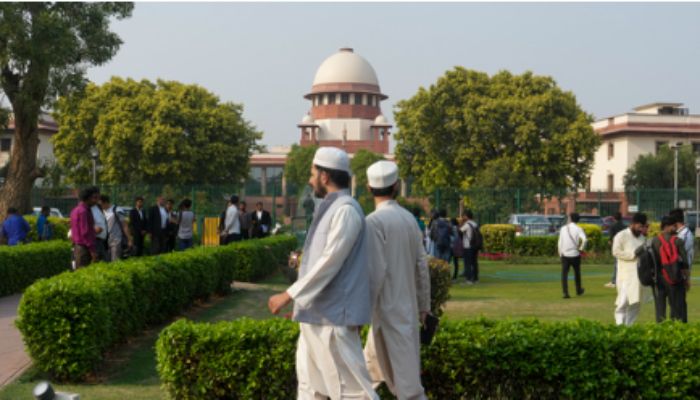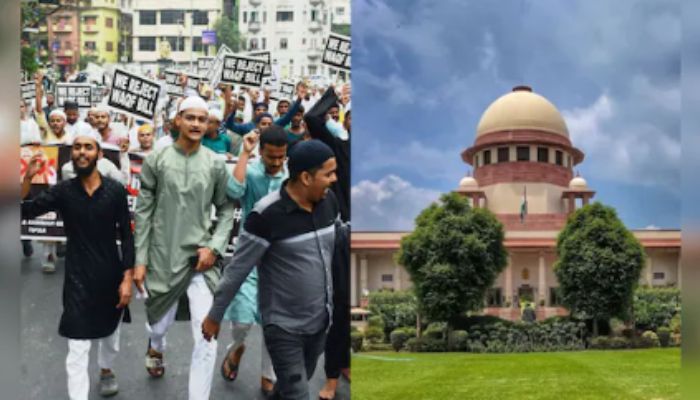The Supreme Court of India is currently hearing multiple petitions challenging the Waqf Amendment Act, a legislation that became law last month. A bench led by Chief Justice of India (CJI) BR Gavai and Justice AG Masih is reviewing arguments both for and against the constitutional validity of this Act, which has raised concerns about religious rights and property ownership among the Muslim community.
What Is the Waqf Amendment Act?
The Waqf Amendment Act brings changes to how Waqf properties are identified, managed, and governed. Petitioners argue that the new provisions allow for potential misuse by enabling the government or even private individuals to challenge Waqf properties without due process.

Supreme Court’s Stand So Far
CJI BR Gavai made a crucial observation during the hearing, stating:
“There is a presumption of constitutionality in legislation passed by Parliament. Courts cannot interfere unless a glaring case is made out.”
This statement underscores the judiciary’s position that legislation approved by Parliament must be presumed valid unless clear violations of constitutional principles are demonstrated.
Key Issues in the Case
The Court had previously limited the hearing to three core issues:
- Waqf by user
- Nomination of non-Muslims to Waqf councils and boards
- Identification of government land as Waqf
However, Solicitor General Tushar Mehta argued that the petitioners are expanding the debate beyond these pre-defined areas. In contrast, senior advocates Kapil Sibal and Abhishek Manu Singhvi contended that a “piecemeal hearing” is inappropriate and the entire Act must be reviewed comprehensively.
Petitioners’ Concerns
Advocate Kapil Sibal raised significant concerns, arguing that the Act could lead to the unlawful seizure of Waqf properties. He emphasized that:
- Only Muslims practicing for five years can now create a Waqf, which is problematic for those wanting to donate property at life’s end.
- Grievances by third parties, including private individuals, can result in Waqf properties being derecognized, with decisions made by government officials who could be biased.
He also criticized the absence of financial support for mosques and graveyards compared to temple trusts that often receive substantial donations, highlighting the economic challenges faced by Muslim religious institutions.
Frequently Asked Questions
1. What is the Waqf Amendment Act?
The Waqf Amendment Act introduces changes to the governance of Waqf properties, including who can create Waqfs and how these properties are identified and regulated.
2. Why are there petitions against the Act?
Petitioners argue that the Act allows arbitrary actions against Waqf properties, limits who can create a Waqf, and violates constitutional rights.
3. What did the Supreme Court say about the Act?
Chief Justice BR Gavai stated that there is a presumption of constitutionality in laws passed by Parliament, and courts cannot intervene unless there is a clear violation.
4. What are the main concerns of the petitioners?
Key concerns include restrictions on who can create Waqfs, lack of due process, and potential government overreach in managing Waqf properties.
5. What happens next in the case?
The Supreme Court will continue hearing arguments. The Centre has submitted its response, and the petitioners are expected to further clarify their objections beyond the three initially defined issues.











